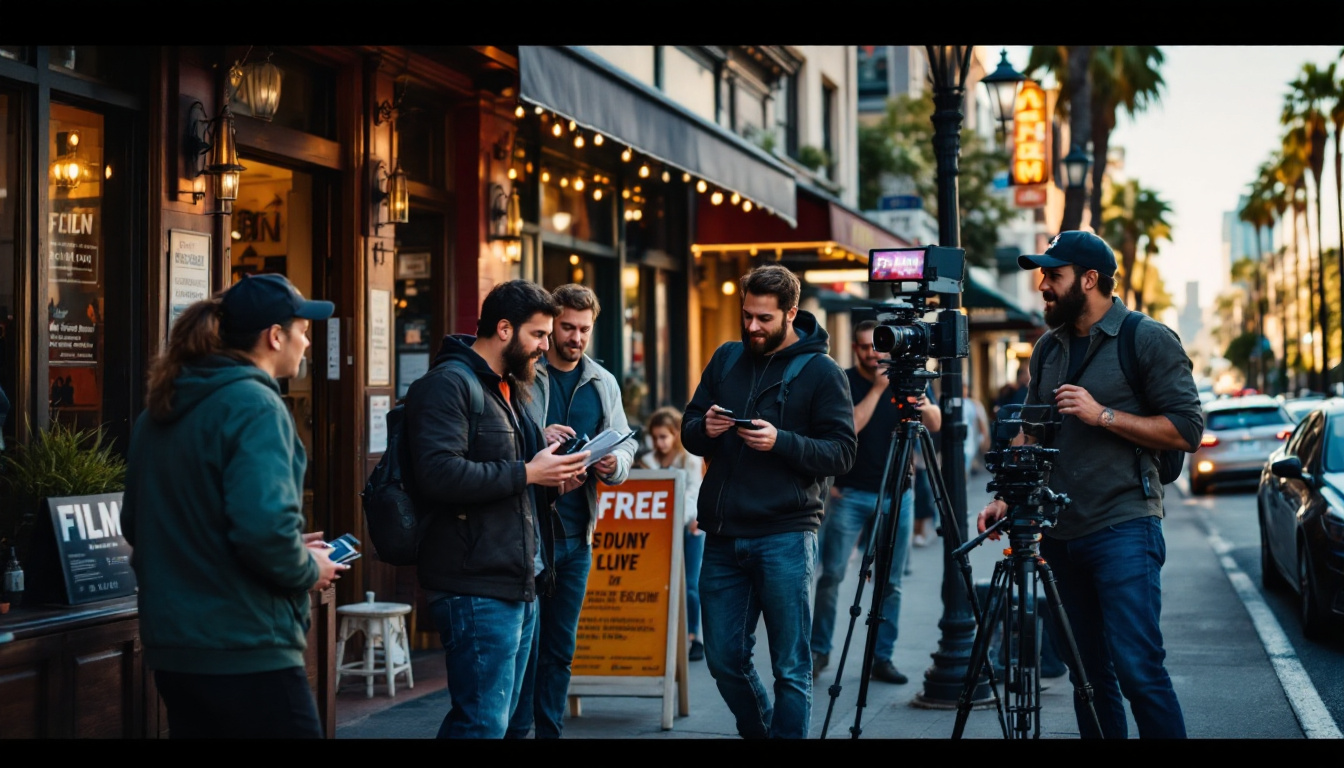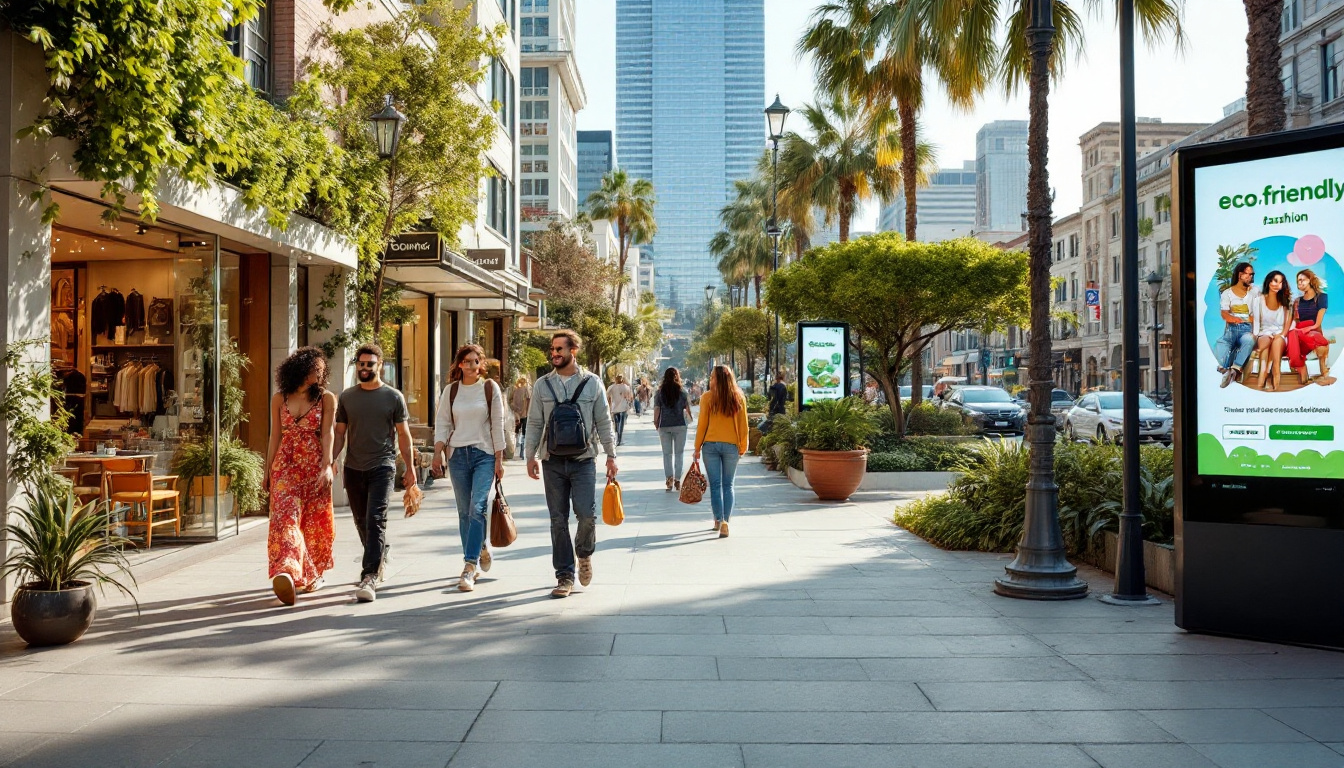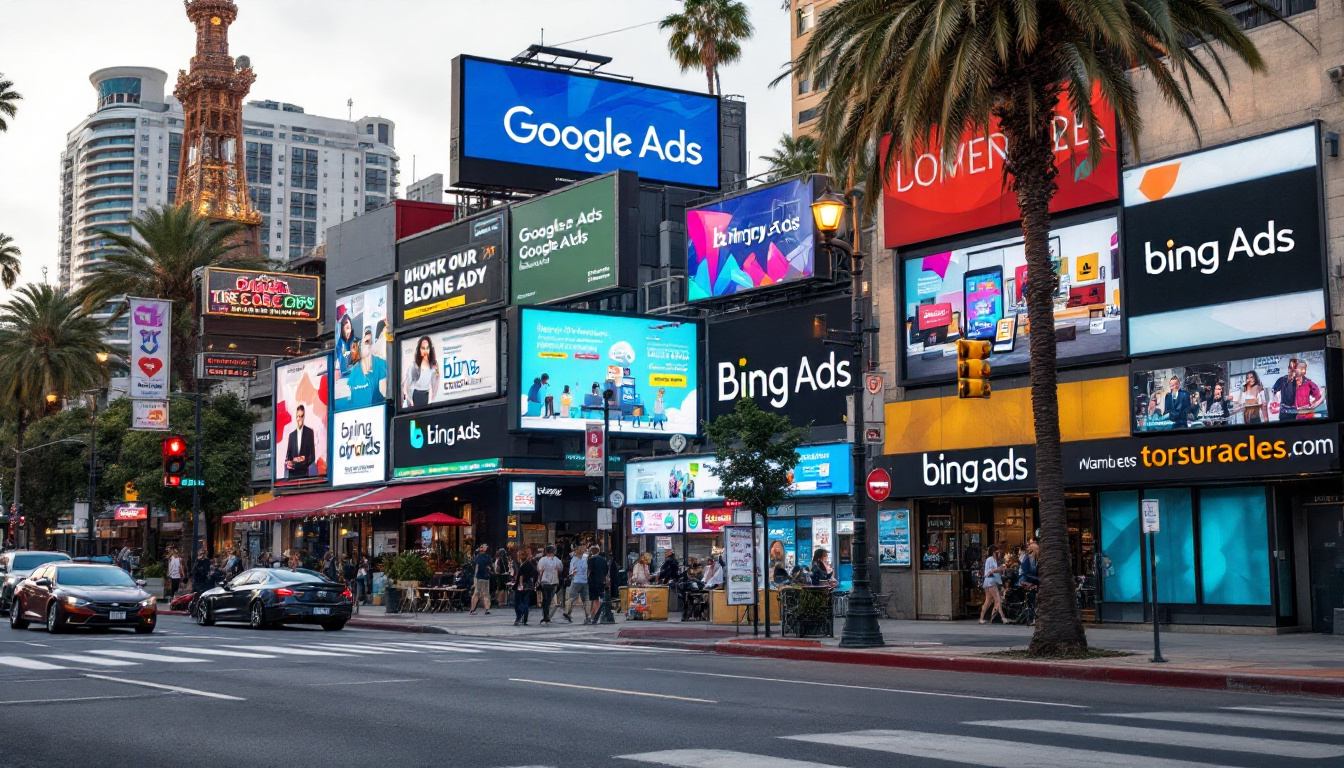Common Myths About PPC for Los Angeles, CA Businesses

Pay-per-click (PPC) advertising has gained significant traction in the marketing strategies of businesses in Los Angeles, California. However, many misconceptions surround PPC, affecting how businesses perceive its value. This article aims to debunk common myths that can mislead companies regarding the effectiveness and feasibility of PPC campaigns. By dispelling these myths, businesses can better navigate their advertising strategies and make informed decisions.
Debunking the 'PPC is too expensive' myth
One of the most prevalent myths about PPC is that it is prohibitively expensive, particularly for small to medium-sized businesses. Many entrepreneurs and marketers believe that only large corporations can afford high-profile PPC campaigns due to their significant budget allocations. This perception often leads businesses to shy away from exploring PPC as a viable marketing channel.
However, the reality is that PPC offers flexible budgeting options. Advertisers can set daily and monthly limits, ensuring they never overspend. Additionally, platforms like Google Ads allow businesses to refine their targeting based on factors like location, keywords, and demographics, which can significantly optimize ad spend.
- Cost Control: Advertisers can choose what they are willing to pay per click.
- Targeting Options: Some specific targeting can lead to less waste in ad spending.
- Measurable ROI: Unlike traditional advertising, PPC is highly measurable, allowing businesses to assess the effectiveness of their investment.
Ultimately, when managed correctly, PPC campaigns can end up being less expensive than anticipated, making it a strategic option worth considering for Los Angeles businesses. Furthermore, the ability to test and iterate on campaigns allows advertisers to quickly identify what works and what doesn’t, enabling them to allocate their budgets more effectively. For instance, a small business can start with a modest budget, analyze the performance of different ads, and gradually scale their investment in the most successful campaigns.
Moreover, the competitive landscape of PPC advertising means that businesses can find niche markets where competition is lower, leading to more affordable click costs. By focusing on long-tail keywords or specific local markets, even smaller players can achieve significant visibility without breaking the bank. This strategic approach not only enhances the chances of conversion but also builds brand awareness in a cost-effective manner, further dispelling the myth that PPC is solely for those with deep pockets.
Why PPC is not just for big companies
Another common misconception is that PPC is primarily available and useful only for big companies with extensive resources. While large businesses certainly utilize PPC, it's a misconception that it cannot benefit smaller enterprises.
PPC is inherently designed to serve a diverse range of businesses, regardless of size. For smaller companies, it can level the playing field against more prominent competitors. With an effective PPC strategy, even local businesses can gain visibility in their target market and attract customers who might not be aware of their existence.
Moreover, local targeting options enable small businesses in Los Angeles to focus their campaigns on their immediate geographical area. This allows them to reach consumers actively searching for their products or services, which can lead to a higher conversion rate. By utilizing geo-targeting features, small businesses can ensure their ads are shown to potential customers in specific neighborhoods or regions, maximizing their advertising spend and enhancing the likelihood of engagement.
In addition to local targeting, PPC platforms offer a variety of ad formats that can cater to different marketing goals. For instance, small businesses can utilize text ads, display ads, or even video ads to capture the attention of their audience. Each format has its unique strengths; text ads are great for straightforward messaging, while video ads can convey a brand's story or showcase products in a more engaging manner. This versatility allows smaller companies to experiment with different approaches and find what resonates best with their audience.
- Local Market Focus: Smaller budgets can still create targeted campaigns effectively.
- Flexibility: Smaller businesses can pivot their strategies quickly based on performance data.
- Time Efficient: PPC campaigns can be launched in a shorter timeframe than most traditional advertising methods.
Therefore, PPC is a robust and accessible marketing channel for businesses of all sizes, and smaller enterprises should not underestimate its capabilities. By leveraging the data-driven insights that PPC provides, small businesses can continuously optimize their campaigns, ensuring they get the most out of their investment while building a strong online presence that can compete with larger brands.
Understanding the role of analytics in PPC
Analytics play a crucial role in the success of PPC campaigns, yet some businesses overlook their significance. Many assume that running a PPC ad is a straightforward process that doesn’t require deep analytical skills. This misunderstanding can result in ineffective campaigns and wasted budgets.

However, analytics provide invaluable insights into the performance of PPC ads. Metrics such as click-through rate (CTR), conversion rate, and cost per acquisition (CPA) offer a clear picture of how well a campaign is performing. Understanding these metrics allows businesses to make necessary adjustments to optimize their campaigns continuously.
- Tracking Performance: Regularly reviewing analytics enables advertisers to see which ads perform best.
- Audience Insights: Analytic tools can reveal demographic information about customers engaging with ads.
- Budget Optimization: Understanding which keywords or ads yield better ROI helps allocate budget more effectively.
By leveraging analytics in PPC, businesses can not only improve their current campaigns but also refine their future strategies to maximize returns. In addition to the fundamental metrics, advanced analytics can provide deeper insights through A/B testing and attribution modeling. A/B testing allows advertisers to compare different ad variations to determine which elements resonate most with their audience, whether it be the wording, imagery, or call-to-action. This iterative process can lead to significant performance improvements over time.
Moreover, attribution modeling helps businesses understand the customer journey across multiple touchpoints. By analyzing how various channels contribute to conversions, advertisers can allocate their resources more effectively and create a more cohesive marketing strategy. For instance, if analytics reveal that a particular social media campaign drives initial interest but PPC ads close the sale, businesses can adjust their strategy to support and enhance these interactions, ensuring a seamless experience for potential customers.
How PPC can provide immediate results
A significant advantage of PPC is its ability to generate immediate results, which often contrasts with other marketing strategies such as SEO. Many business owners hold on to the belief that all marketing tactics take time to establish and show results. This notion can be especially disheartening for businesses looking for quick returns on their investments.

With PPC advertising, once the campaign is launched, ads start appearing almost instantaneously, allowing businesses to engage with potential customers immediately. In a competitive market like Los Angeles, this immediacy can be crucial in capturing attention before other competitors.
In addition to instant visibility, PPC campaigns can be adjusted in real-time based on performance metrics. If an ad is not performing well, it can be tweaked or replaced swiftly, maintaining engagement and optimizing the budget efficiently.
- Instant Engagement: Ads can be displayed immediately to target audiences.
- Real-Time Adjustments: Businesses can alter or pause campaigns based on live performance data.
- Boosted Brand Awareness: Increased visibility can help enhance brand recognition quickly.
Moreover, the targeting capabilities of PPC allow businesses to reach specific demographics, interests, and behaviors, ensuring that their ads are seen by the most relevant audiences. For instance, a local coffee shop can target users within a certain radius who have shown interest in coffee-related content, maximizing the chances of attracting foot traffic. This level of precision not only enhances the effectiveness of the ad spend but also fosters a more personalized experience for potential customers, making them more likely to engage with the brand.
Furthermore, the integration of various platforms, such as Google Ads and social media networks, provides businesses with the flexibility to diversify their advertising strategies. By utilizing different channels, companies can experiment with various ad formats, from text and display ads to video content, appealing to a broader audience. This multi-faceted approach not only amplifies reach but also allows businesses to gather valuable insights on which platforms and formats resonate best with their target market, paving the way for more informed marketing decisions in the future.
Thus, PPC serves as an effective tool for businesses seeking to achieve quick results and drive immediate traffic to their websites.
PPC vs. SEO: Which is better for your business?
The debate between PPC and SEO is a common topic among marketers, with each method presenting its unique advantages and disadvantages. Many businesses in Los Angeles grapple with deciding which approach to prioritize to achieve the best results.
PPC is beneficial for immediate visibility and quick traffic generation, as previously discussed. However, SEO focuses on building organic search presence that can lead to sustainable long-term benefits. Each strategy has its merits and can complement one another.
Businesses should assess their unique goals, budgets, and timelines when making this decision. For instance, if immediate sales or leads are the priority, PPC might be the best route. Conversely, if the goal is long-term community building and brand loyalty, investing in SEO might be more appropriate.
- PPC: Offers quick visibility and immediate results, measurable metrics, and flexible budgets.
- SEO: Focuses on long-term organic growth and brand credibility, requiring ongoing efforts for optimal results.
Ultimately, the choice between PPC and SEO should align with business objectives, resource availability, and market conditions, making a well-rounded marketing strategy that includes both approaches often the most effective method for success.

As a Google Ads expert, I bring proven expertise in optimizing advertising campaigns to maximize ROI.
I specialize in sharing advanced strategies and targeted tips to refine Google Ads campaign management.
Committed to staying ahead of the latest trends and algorithms, I ensure that my clients receive cutting-edge solutions.
My passion for digital marketing and my ability to interpret data for strategic insights enable me to offer high-level consulting that aims to exceed expectations.





























